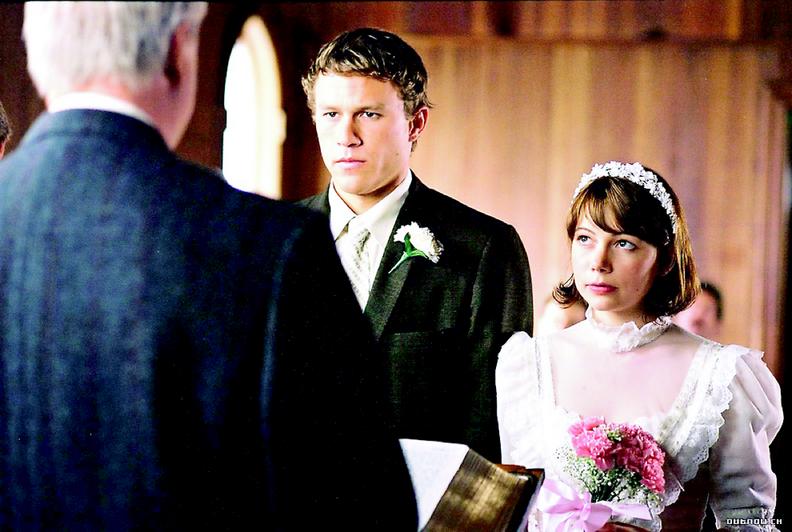Directed by Ang Lee (Crouching Tiger, Hidden Dragon; Sense and Sensibility) and starring Heath Ledger (Lords of Dogtown, Monster's Ball) and Jake Gyllenhaal (Jarhead, Donnie Darko), Brokeback Mountain is the story of two cowboys tasked with herding sheep in Wyoming during the summer of 1963. On a cold night on the mountain, the two men end up sharing a pup tent together, leading to a discreet love affair that spans several years.
Following their summer together on Brokeback, the two young men go their separate ways. Ennis Del Mar (Ledger) gets married and starts a family, while Jack Twist (Gyllenhaal) goes on the rodeo circuit and marries the daughter of a combine salesman. The love between the two men, however, never dissipates. Del Mar and Twist subsequently meet up a number of times, but the notion of these two men spending their lives together–in the American West of the '60s and '70s–is out of the question.
Thus, viewers are exposed to a poignant, heartbreaking and emotional drama focusing on the consequences of both illicit and unfulfilled love. The film is based on a short story by E. Annie Proulx (The Shipping News) and a screenplay written by Larry McMurty (Lonesome Dove) and Diana Ossana (Johnson County War). The picture deviates little from Proulx's story, which originally appeared in The New Yorker magazine in 1997 and is now widely available in bookstores.
Ledger's strong portrayal of Del Mar–the rougher, harder-edged of the two men–accurately encapsulates the tortured emotions that come with having to constantly deny and hide your true feelings. Likewise, Gyllenhaal's Twist shines as the more emotional character–the one willing to sacrifice everything for the prospect of happiness with the person he loves, if only given the chance.
Ang Lee's colorful imagery and skillful filmmaking capture both the essence of life in the West and the struggles faced internally and externally by Del Mar and Twist. An impressive musical score by Gustavo Santaolalla (North Country, 21 Grams) sets a bittersweet tone for the film.
Unfortunately, Brokeback Mountain possesses a downside with its less than credible makeup. Despite the best efforts of makeup artist Manlio Rocchetti, whose credits include Gods and Generals and Gangs of New York, films set over long spans of time often face this peril. With the film's actors being in their early and mid-20s, it's fairly difficult for Rocchetti to age them convincingly. However, this detail is minor when weighed against the sum of the film.
There was a time when “playing it gay” meant putting your Hollywood career on the line. But Brokeback Mountain rates as nothing less than a watershed film, and it would be surprising if Ledger or Gyllenhaal are passed over for Academy Award nominations. Their powerful and convincing performances are a tribute to their flexibility and talent as actors. Furthermore, both men have been given an amazing opportunity at a young age that many actors never get–the ability to help shatter society's stereotypes on a large scale and create real change through art. Their work in Brokeback Mountain helps reveal a first-rate love story–evidence of the fact that love knows no boundaries, no matter who you are or where you're from.



